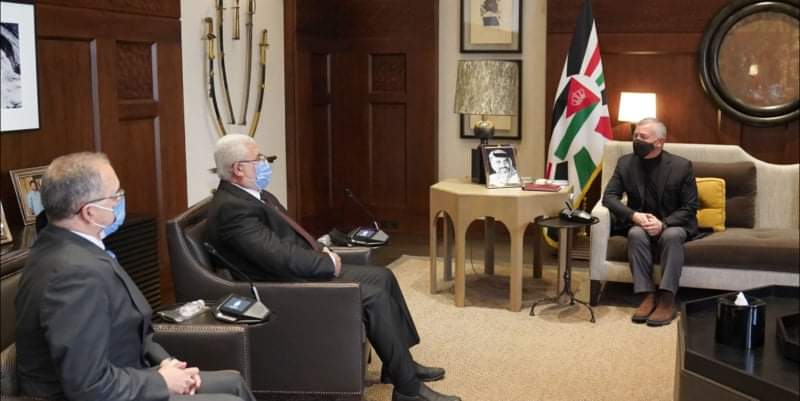- Local News
- Mon-2021-10-18 | 07:26 pm

Nayrouz News Agency :
His Majesty King Abdullah, in three separate meetings at Al Husseiniya Palace on Monday, received the annual reports of the Judicial Council, the Jordan Integrity and Anti-Corruption Commission (JIACC), and the National Centre for Human Rights (NCHR).
During a meeting with Judicial Council President Mohammad Ghazou, King Abdullah stressed that a just, impartial, and efficient judiciary is a must to support political modernisation.
His Majesty noted the importance of continuing to utilise technology and training judicial staff, and emphasised the need to facilitate procedures and expedite litigation, without compromising fairness and quality.
According to the council’s report, an independent budget was allocated for the Judicial Council as of January 2020, the Cabinet approved the Judicial Service By-law, and the number of female judges went up by 42%.
Receiving the JIACC annual report from Chairperson Muhannad Hijazi, the King reaffirmed that no one is above the law and that fighting corruption is a top priority.
His Majesty underscored that JIACC’s work must have tangible results for the public, noting that it should also reflect on Jordan’s standing on international indices.
According to its annual report, the JIACC processed 2,090 complaints in 2020, 769 of which were investigated by law enforcement agencies and 170 were referred to public prosecution and established new specialised units, including the investment unit, which contributed to retrieving JD1.9 million and helped remove obstacles faced by investors.
At the meeting with NCHR Chairperson Rohayel Gharaibeh and Commissioner General Alaeddin Armouti, the King highlighted the importance placed on safeguarding freedoms and human rights during Jordan’s first centennial and called for bolstering these efforts into the second centennial.
His Majesty reaffirmed the need for cooperation and coordination with various state institutions to ensure the implementation of the recommendations of the NCHR’s 2020 report.
The report covered, among other issues, the strategy developed to ensure the continuation and fairness of litigation during the COVID-19 pandemic and the need to expand such efforts, as well as a number of measures taken to limit the spread of COVID-19 among inmates.
Royal Hashemite Court Chief Yousef Issawi and Director of the Office of His Majesty Jafar Hassan attended the three meetings.









